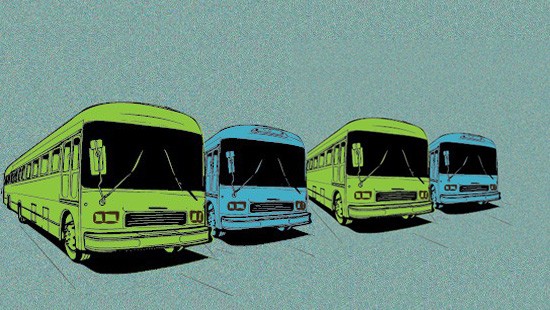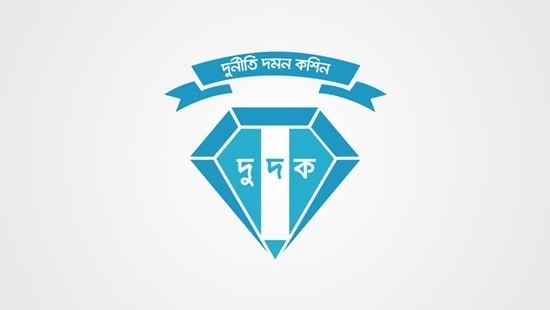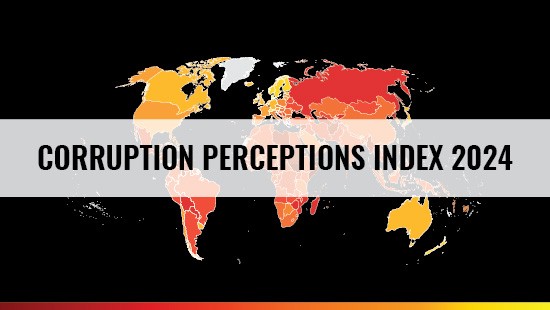Press Release
Dhaka, 11 February 2025: In the Corruption Perceptions Index (CPI) 2024, published by Berlin-based Transparency International (TI), Bangladesh's score fell by one point to 23, and its ranking, in ascending order (where 1st is the least corrupt and 180th is the most corrupt), dropped by two places to 151st out of 180 countries compared to 2023. Transparency International Bangladesh (TIB) asserts that this decline reflects the fallen authoritarian government's failure to address corruption. Despite its public stance against corruption over the past 13 years, the government has, in practice, condoned, enabled, and even participated in corrupt activities. As a result, Bangladesh's position has steadily worsened, driven by unchecked corruption, state protection for the corrupt, flawed legal enforcement, and systemic weaknesses. TIB has outlined six key recommendations aimed at strengthening the nation’s institutions, cracking down on corruption, and ensuring severe punishment for the corrupt.
This information was presented at a press conference held this afternoon as part of the global release of CPI 2024. While highlighting Bangladesh's position, TIB's Executive Director, Dr. Iftekharuzzaman, spoke at the event, which was moderated by Mohammad Tauhidul Islam, Director of the Outreach and Communication Department. Speaking at the event, TIB Executive Director Dr. Iftekharuzzaman said, "According to the CPI, Bangladesh’s score on the 0-100 scale fluctuated between 25 and 28 from 2012 to 2022. However, after dropping by one point in 2023 to 24—the lowest in 12 years—it has fallen another point this year to 23, marking the lowest in 13 years. Bangladesh now ranks 14th among the 180 countries with the lowest scores in the index." The organization's Advisor-Executive Management, Professor Dr. Sumaiya Khair, was also present at the press conference.
The press conference highlighted that Denmark topped the 2024 CPI as the least corrupt country, scoring 90, followed by Finland with 88 and Singapore with 84. Conversely, South Sudan ranked the lowest with a score of 8, while Somalia and Venezuela followed with scores of 9 and 10, respectively. It was also noted that 101 out of 180 countries scored below the global average of 43, with more than two-thirds—122 countries—scoring below 50. Additionally, this year, nearly one-quarter (47) of the countries included in the index recorded their lowest scores in the past 13 years since 2012. Informing about this year’s CPI theme-"Corruption and Climate Crisis" TIB Executive Director said,"This year’s analysis of the index indicates that Bangladesh is among the countries losing control over corruption, with a highly concerning level of corruption. Bangladesh holds the second-lowest score and ranking in South Asia, trailing only Afghanistan. According to the CPI, the average scores for 24 full democracies, 50 flawed democracies, 36 hybrid democracies, and 59 authoritarian states stand at 73, 47, 37, and 29, respectively. In contrast, Bangladesh’s score is 23, which is 20 points below the global average."
Dr Zaman further said, "Our score is lower than that of the lowest-ranked countries in the civil spaces and human development indices. Bangladesh’s score is also 10 points lower than the average of sub-Saharan Africa, the most corrupt region. This year’s score is the lowest since 2012, which is both alarming and disappointing. More significantly, the money laundered from our country is flowing into nations that rank high on the index. We are responsible for the corruption occurring within the country, as well as for the failure to prevent money laundering. However, it cannot be said that the full responsibility lies solely with Bangladesh, as the true situation is more complex than it appears. The reality is that countries with higher rankings may have fewer instances of everyday corruption, but their legal frameworks and enforcement loopholes allow laundered money to be invested freely. Consequently, these nations, as beneficiaries of illicit funds, play a catalytic role in enabling high-level corruption in developing countries like ours."
Mentioning that the tenure of the interim government can’t be evaluate entirely through this index, Dr. Zaman said, "Despite the fall of authoritarianism, factionalism, usurpation, and extortion continued under different names and identities until September 2024. Therefore, it can be said that, albeit modestly, there is a reflection of the immediate post-authoritarian period. Among the institutions responsible for combating corruption, the Anti-Corruption Commission (ACC) is striving to fulfill its duties effectively. However, its continued success largely depends on the commission’s capabilities. If the ACC is able to meet public expectations and if the recommendations of the ACC Reform Commission are implemented, Bangladesh's score may improve in the future. For this to happen, however, cooperation from other relevant organizations is essential."
Calling upon to bring a change, Dr. Zaman said, "The fallen government facilitated corruption by allowing black money laundering in the budget. Just as corruption was shielded and excused within the government, it was also socially normalized. This culture must be eradicated at all levels. The concern is that, despite the fall of authoritarianism, many authoritarian practices remain unchanged. However, we remain optimistic that Bangladesh will overcome this situation, leveraging the opportunity presented by our young generation to eliminate the culture of corruption."
According to the CPI 2024, Bhutan is the only South Asian country to improve its score, gaining 4 points compared to 2023. In contrast, the remaining seven countries saw declines ranging from 1 to 3 points. Afghanistan experienced the largest drop of 3 points, followed by Pakistan and Sri Lanka with 2 points each, while Bangladesh, India, Nepal, and the Maldives declined by 1 point. In terms of ranking (ascending order), only Bhutan and Nepal improved their positions, moving up by 8 and 1 steps, respectively. The rankings of the other six countries dropped by 2 to 6 steps. Sri Lanka saw the steepest decline, falling by 6 steps, while Afghanistan, India, and the Maldives dropped by 3 steps each, and Bangladesh and Pakistan by 2 steps each. Notably, apart from Bhutan, all other South Asian countries scored below the global average of 43, underscoring the concerning extent and depth of corruption in the region.
The CPI index measures the perceived level of corruption on a scale of 0-100. A score of '0' is considered to be the most affected by corruption, and a score of '100' is considered to be the least affected by corruption or most well-governed. No country included in the index has received a 100 per cent score so far.
It was stated at the press conference that CPI defines corruption as the abuse of public office for private gain, and TIB does not play a role in determining the CPI. Even the data or analysis from any of TIB's research is not added to the CPI. Like the TI chapters in other countries around the world, TIB only publishes the CPI at the country level. A total of 13 surveys are used as the data sources for the CPI for different countries of the world. Minimum three international surveys are needed for a country to be included in the index. In the case of Bangladesh, eight surveys have been used like the last year. The surveys are – World Economic Forum’s Executive Opinion Survey, Economist Intelligence Unit’s Country Risk Ratings, World Justice Project’s Rule of Law Index, Political Risk Service’s International Country Risk Guide, Bertelsmann Foundation’s Transformation Index, Global Insight Country Risk Ratings, World Bank’s Country Policy and Institutional Assessment, and Varieties of Democracy Project Dataset’s report.
For more detail: https://www.ti-bangladesh.org/cpi
Media Contact:
Mohammad Tauhidul Islam
Director, Outreach and Communication
Phone: +8801713107868
Email: tauhidul@ti-bangladesh.org







